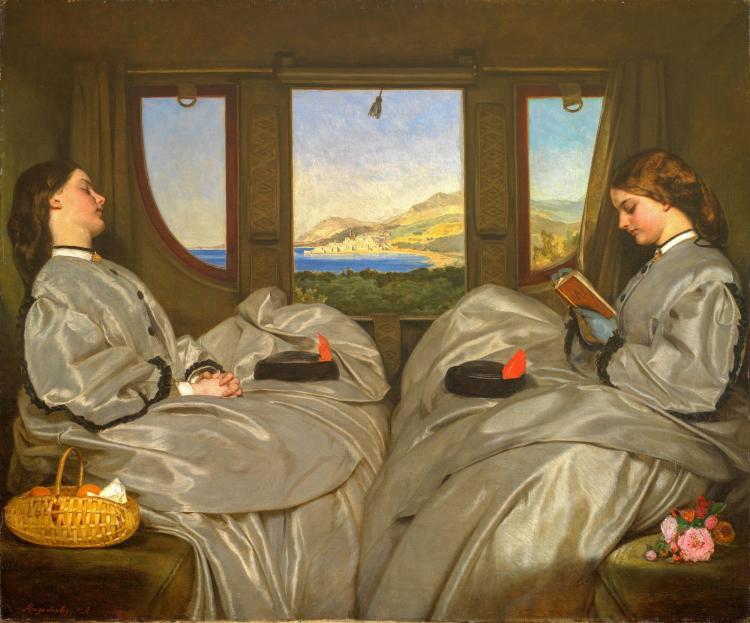The other thing I ought to try a lot harder to resist, is trolling round Amazon late at night. The novels of Robert Silverberg are my latest thing and I spotted this apparently 'classic' sci-fi collection of his:

I did stop to read a bit about the stories, I really really did, but to tell the honest truth - I took one look at that cover and that was it, I had to have it. It's in the post as we speak.
And I've just finished this:

I'm Half Sick of Shadows by Alan Bradley, book four in his Flavia De Luce series. It was huge fun but I don't feel likde doing a long review so will probably just mention it in my monthly round-up post. I do recommend this series to anyone who likes a fun crime series though. Flavia is completely wonderful and the books just get better and better.
Another way in which I don't help myself in my 'what to read next' quandaries is the library. Two more books on reserve have just come in - Miss Read's Thrush Green books as a matter of fact. I haven't read any Thrush Green since this time last year and I was feeling the lack. And while I was there I spotted an anthology edited by Neil Gaiman and Al Sarrentonio, simply entitled, Stories. Loads of interesting authors in this: Joanne Harris, Peter Straub, Diana Wynne Jones, Gene Wolfe, Lawrence Block and so on. Of course I couldn't resist and now it's on my library shelf...
But I was still dilly-dallying about what to read next, and so... browsing my own shelves I came across this:

America Observed by Alistair Cooke. Anyone of a certain age in the UK will remember Cooke's Letters from America on the radio. I remember listening to them as a child and being fascinated by this country far across the Atlantic that I was sure I would never get to visit. But Cooke was also a newspaper man and from 1946 to 1972 wrote columns for The Guardian about life in the USA. I started to read, the first one was a little piece from 1946 about Christmas...
Up from Florida comes a postcard containing the gentle sneer of a friend, naked under a coconut palm. Down from Vermont the apologies of an invited guest, buried in his farm under thirty inches of snow. From Hollywood we hear the alarmingly modest confession that it would be nice once in a while to see some of God's own snow, as distinct from the usual studio product of sand and limestone with a coating of cornflakes. Only New York, suspended precariously between the American Arctic and the American tropics at about the latitude of Madrid, can keep up its chronic conceit that everything about it, including the climate, is typical of the best and brightest in American life. This, on Christmas Eve, means a temperature in the low forties, 'considerable cloudiness and shifting winds'.
And this (still 1946 remember):
Down in the Carolinas, Federal agents were still hunting the hills for moonshiners, one of whom this week, caught working an illicit still on a mountainside, was reported not to have heard that the Prohibition Act had been repealed. 'Wait until President Harding hears about this' is the uncomfirmed report of what his brother said.
And to finish:
To Americans with friendships in England there was a further last-minute cause for rejoicing, for the New York Times reports that 'Britain rejoiced today when a thaw set in after the coldest night of the year'. Sympathetic readers who imagined Minnesota's twenty below zero, or even New York's fourteeen above ten days ago, were puzzled by the news that the thermometer was only in the twenties. However, The New York Times charitably explains that 'Britain is always ill-equipped for cold spells because of the lack of steam heating and the faulty construction of windows in most houses'. A murrain on you, British builders, a chattering New Year to you, members of the National Glaziers and Plasterers union!
Joyous, absolutely 'joyous'! I'd forgotten what a wonderful writer Alistair Cooke was, and how funny. By the way, I had to look 'murrain' up... it has a few meanings but in this context it means 'a plague'. I'm still not sure what I'm going to read next but what I am going to do, along with my current enjoyment of Debo Devonshire's various fascinating thoughts in All in One Basket, is enjoy some of these wonderful American dispatches from Alistair Cooke.
I hope you're all having better luck than me in deciding what to read?






















